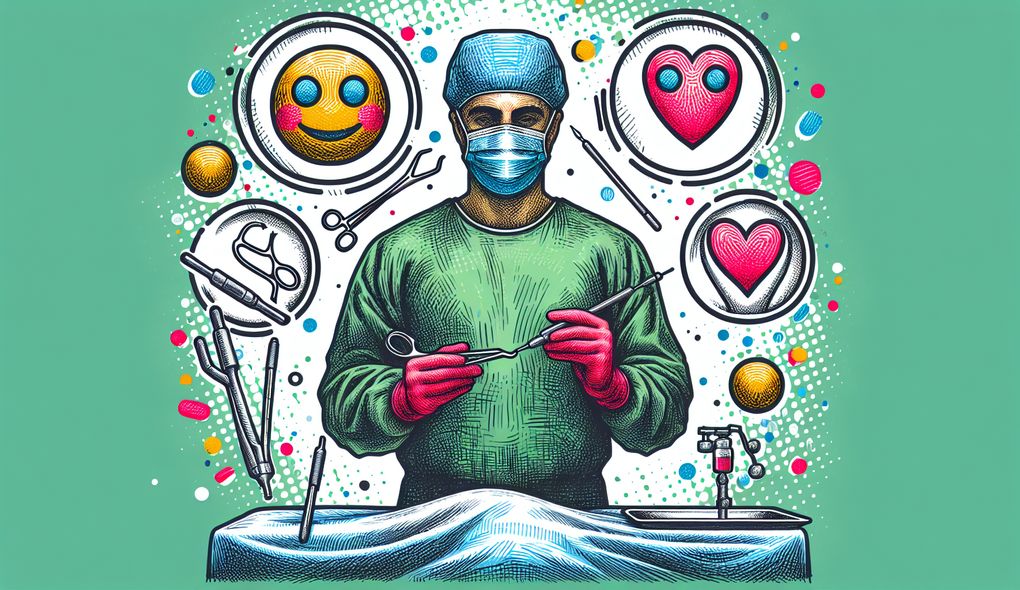Describe a time when you had to quickly adapt to a change in surgical plans during a procedure.
SENIOR LEVEL

Sample answer to the question:
During one procedure, I had to quickly adapt to a change in surgical plans when we discovered unexpected complications. While performing a breast augmentation surgery, we encountered a ruptured implant that required immediate attention. I remained calm and worked closely with my team to come up with an alternative plan. We swiftly obtained a new implant and adjusted the surgical approach to address the situation. Despite the unforeseen challenge, the procedure was completed successfully, and the patient was satisfied with the final result.
Here is a more solid answer:
I vividly recall a time when I had to quickly adapt to a change in surgical plans during a procedure. While performing a rhinoplasty, we discovered unexpected nasal bone asymmetry that required immediate correction. I efficiently communicated the situation to the patient, explaining the need for an additional procedure to achieve the desired result. With my excellent manual dexterity and eye-hand coordination, I swiftly adjusted the surgical approach, carefully reshaping the nasal bones to create symmetry. The patient was pleased with the outcome, and I ensured meticulous attention to detail throughout the procedure to achieve aesthetically pleasing results.
Why is this a more solid answer?
The solid answer goes into more detail about the specific surgical procedure (rhinoplasty) and the change in plans that required adaptation. It also emphasizes the candidate's excellent manual dexterity and eye-hand coordination, as well as their dedication to achieving aesthetically pleasing results. However, it could further improve by providing specific examples of strong communication with both patients and medical staff.
An example of a exceptional answer:
A particularly memorable experience where I quickly adapted to a change in surgical plans during a procedure was during a facelift surgery. While performing the procedure, we encountered unexpected bleeding, which jeopardized the patient's safety. Demonstrating strong leadership skills, I promptly informed the surgical team and made the decision to transition from an open facelift technique to an endoscopic approach to minimize the risk of further bleeding. With my excellent manual dexterity and eye-hand coordination, I adeptly adjusted the surgical steps, ensuring meticulous hemostasis. By effectively communicating the situation to the patient's family, I alleviated their concerns and reassured them of the revised plan. The procedure was completed successfully, and the patient achieved the desired aesthetic outcome. This experience highlighted my ability to quickly adapt to unforeseen circumstances, while maintaining effective communication and achieving aesthetically pleasing results.
Why is this an exceptional answer?
The exceptional answer provides a detailed example of a change in surgical plans during a facelift surgery and how the candidate demonstrated strong leadership skills, effective communication, and achieved aesthetically pleasing results. It also emphasizes the candidate's ability to quickly adapt to unforeseen circumstances. It covers all the evaluation areas from the job description and provides specific and impactful details.
How to prepare for this question:
- Review your past experiences and identify any instances where you had to quickly adapt to a change in surgical plans during a procedure.
- Think about the specific skills and abilities mentioned in the job description that are relevant to this question.
- Prepare a concise and clear explanation of the situation, highlighting your problem-solving skills, communication skills, and attention to detail.
- Practice delivering your answer in a confident and relaxed manner, emphasizing your ability to adapt quickly while maintaining patient safety and achieving desirable results.
What are interviewers evaluating with this question?
- Excellent manual dexterity and eye-hand coordination.
- Strong communication skills, both with patients and medical staff.
- Attention to detail and dedication to achieving aesthetically pleasing results.

